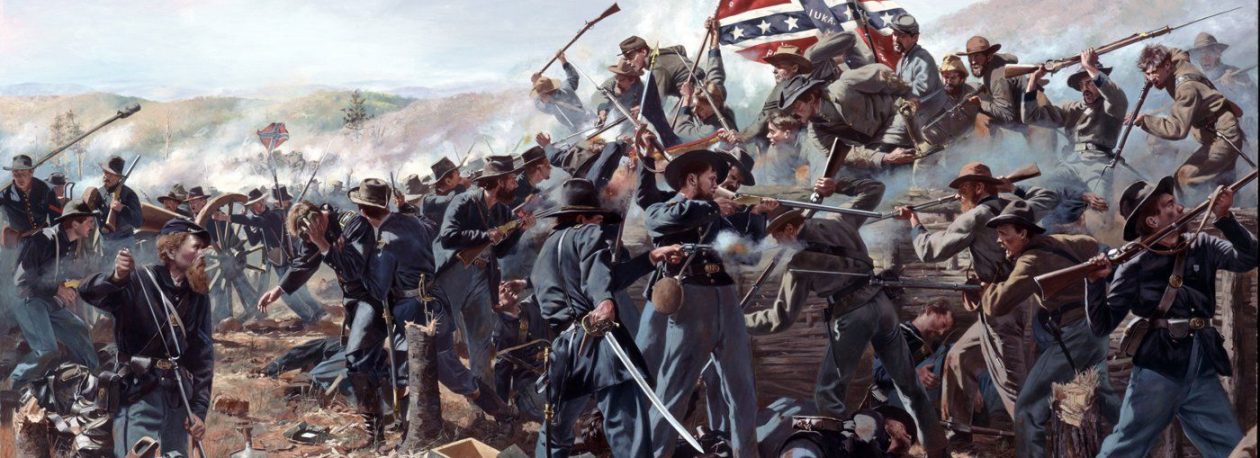This letter was written by George Leroy Thomas (1843-1933)—the son of William Reynold Thomas (1804-1891) and Christiana Simms Knight (1813-1891) of Cincinnati, Hamilton county, Ohio. George was a printer’s apprentice when he enlisted as a private in Co. D, 2nd Kentucky Infantry, in April 1861. He served with the regiment until March 1863 when he was discharged due to disability. While in the service, he saw action at Shiloh, the Siege of Corinth, and the battle of Stone River. After the war (1868), he relocated to Milwaukee where he was employed by the Grover & Baker Sewing Machine Company as a bookkeeper. He married Julia N. Sivyer (1849-1959) in 1871 and changed careers first to a liveryman and then to an undertaker.
George’s father worked as a machinist for the Eagle Iron Works (sometimes cited as a “foundry”) in Cincinnati. The foundry was located on the north side of the Miami and Erie Canal between Main & Walnut Streets. During the Civil War, the firm manufactured cannons.

TRANSCRIPTION
Addressed to Mr. William R. Thomas, Eagle Iron Works, Cincinnati, Ohio
Louisville, Kentucky
February 28, 1863
Dear Parents,
We landed here this morning about 2 o’clock and were immediately marched to the barracks from which place I am now writing. The trip by deck passage was more pleasant that I anticipated. There were eleven deserters in the squad. All of them were hand cuffed when we started from the city but got the shackles off off before reaching the place. But they did not put the Corporal to much trouble. The sight of sharp bayonets and loaded guns in the hands of the guard seemed to have a very soothing effect on them where they became anyways refractory. I have heard of persons “sleeping sweetly” but I never experienced such a thing until last night and I will leave you to judge if I should not of slept sweetly as I was huddled up on some “Golden Syrup” with my back braced against the cylinder of one of the large engines where I spent a very comfortable night as I did not suffer from the cold a bit.
The barracks is an old furniture warehouse with bunks fixed on one side of each room. It is capable of sleeping about 600 men. They have just finished scrubbing the floors and there is a good fire to sit by and, take it all together, it is about as pleasant here as it can be made. I expect to go to Nashville in the morning. In the meantime, I will lay aside my pen, get a pass, take a stroll through the city, take a few notes, and see if I can find that “high moral tone” which pervades all places which are blessed with the institution [of slavery].
Camp at Cripple Creek
8 miles from Murfreesboro [Tennessee]
I quit writing on Saturday expecting to take a stroll about Louisville but I was disappointed as they would not let me out on Sunday morning early. We were started for Nashville which place we reached without accident or much worthy of notice. The track of [the] army can be traced everywhere—no fences around the fields, dead horses and mules, broken wagons meet the eye at most every turn. The prettiest places on the road that I saw were Franklin, Kentucky, and Gallatin, Tennessee. Both places seem to be in a flourishing condition. We passed through four tunnels [and] over any number of bridges. The one over the Cumberland river is a splendid structure. It has a span of about one half of a mile. I saw the remains of the cars that the Rebs destroyed on last Thursday.
The battlefield of “Stone River” presents a sorry aspect. Dead horses and mules are plenty, trees shattered by the shot and shell. and the remains of burnt wagons and cars on each side of the railroad for a distance of some miles. I forgot to say that we stayed in Nashville all of Sunday night in an unfinished building intended for a hotel and built by Zollicoffer & Co. It will be a splendid building if ever finished.
Murfreesboro is a terrible muddy place, yet clean enough for the Rebs who live there. From the latter place to this camp I came in a stiff wagon. Saw John walking around and knew him and called him. He was somewhat surprised to see me. The boys are all in a healthy condition. Some if not all are homesick. The camp is situated in a cedar grove. It is very muddy, chilly at nights, but pleasant in the day. This is about all I have to say. I will give John a chance to write a few lines. He is now out standing regimental guard.
Direct my letters to this company same as you do John’s.
Your son, — George





One thought on “1863: George Leroy Thomas to William Reynold Thomas”